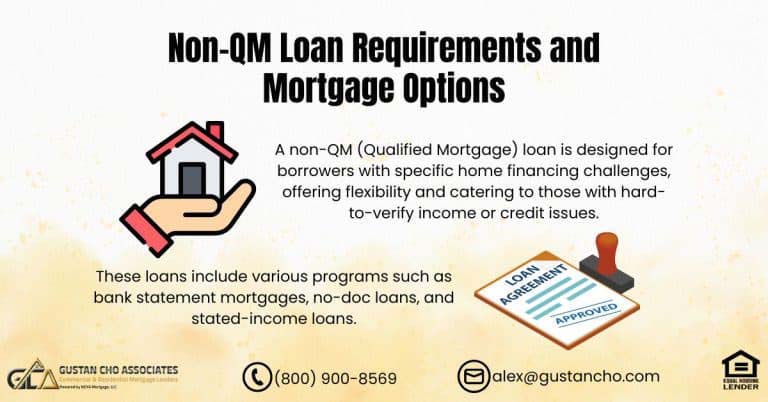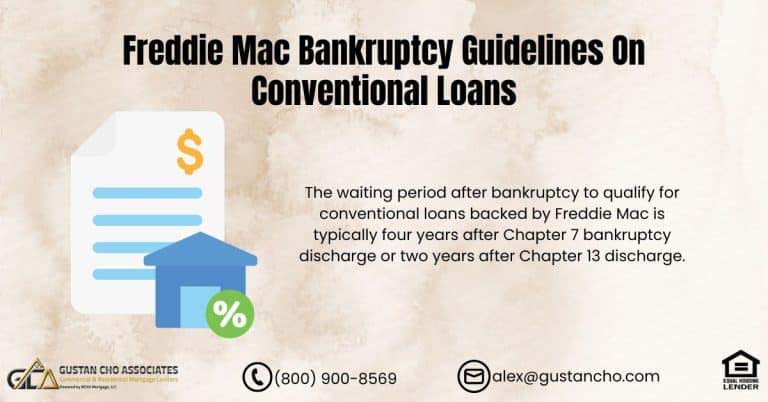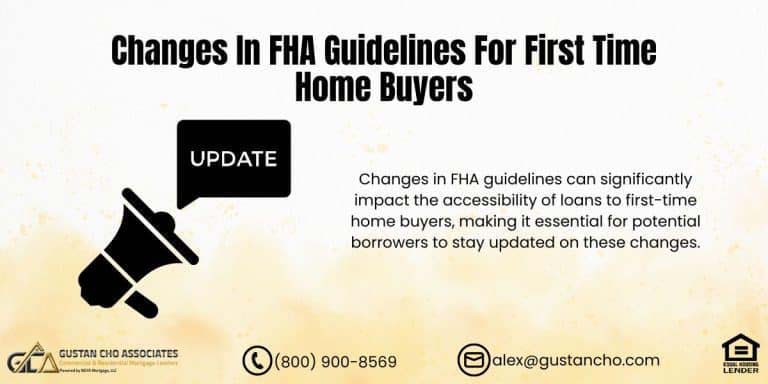When COVID-19 hit in early 2020, millions of homeowners used the CARES Act mortgage forbearance program to stay afloat. Years later, many of those same borrowers want to buy a new home or refinance and are now asking one big question: What is the waiting period after CARES ACT forbearance to qualify for a mortgage?
This article will walk you through how CARES Act forbearance worked, how Fannie Mae and Freddie Mac treated borrowers who paused payments, and what the waiting period after CARES ACT forbearance looks like, depending on how you exited forbearance. We’ll also cover options if a prior forbearance is still causing loan denials and how Gustan Cho Associates can help.
Key Takeaways: Waiting Period After CARES ACT Forbearance
- The waiting period after CARES ACT forbearance depends on how you exited forbearance: full reinstatement, repayment plan, payment deferral, or loan modification.
- If you repay all missed payments in a lump sum and bring the loan current, there is often no formal waiting period after CARES Act forbearance for a new conventional mortgage.
- If you have entered a repayment plan, payment deferral, or modification, most lenders require at least three on-time payments under the new terms before approving a new loan.
- The CARES Act forbearance was not intended to be reported late. It should not have damaged your credit scores if handled correctly.
- Many denials today occur not because of CARES Act forbearance, but due to lender overlays and a misunderstanding of the true waiting period after CARES Act forbearance.
- Gustan Cho Associates has laid-back rules for government and conventional loans, and they also have Non-QM options for borrowers who don’t fit the typical programs due to past forbearance or modification issues.
Not Sure If You Can Qualify After CARES Act Forbearance?
We’ll check your mortgage history, waiting period, and credit for you
How the CARES Act Forbearance Program Worked
The CARES Act was an emergency relief law passed in 2020 in response to the economic impact of the COVID-19 pandemic. One key benefit was guaranteed mortgage forbearance for eligible homeowners with government-backed or agency-owned mortgages.
Under the CARES Act:
- Homeowners facing COVID-related hardship could request a temporary pause or reduction in payments.
- Servicers were required to offer forbearance on qualified loans.
- During forbearance, the servicer was prohibited from reporting late payments as delinquent due to the CARES forbearance.
Many borrowers worried that using forbearance would ruin their future financing options. In reality, the CARES Act was designed so that properly documented forbearance itself would not tank your credit report. But the waiting period after CARES Act forbearance to get a new mortgage depends heavily on what happened after the forbearance ended.
The Roles of Fannie Mae and Freddie Mac in the Mortgage Market
To understand the waiting period after CARES Act forbearance, you need to know how Fannie Mae and Freddie Mac fit into the picture.
- Lenders fund loans using a warehouse line of credit.
- After closing, most loans are sold to the secondary mortgage market.
- The biggest entities involved in purchasing conventional home mortgages are Fannie Mae and Freddie Mac.
- By purchasing loans, lenders free up capital, allowing them to continue making more loans.
Because Fannie Mae and Freddie Mac set the guidelines for the loans they buy, their rules on how to treat a prior CARES Act forbearance directly affect whether you qualify for a new conventional mortgage and what your waiting period after CARES Act forbearance will be.
Fannie Mae Waiting Period After CARES ACT Forbearance
When the CARES Act forbearance program was first introduced, Fannie Mae provided specific guidance on how to treat borrowers who had paused payments and then sought a new mortgage. That guidance shaped the waiting period after CARES Act forbearance for conventional loans.
Key points from Fannie Mae’s COVID-era policy:
- If you missed payments during CARES Act forbearance and entered into a repayment plan, payment deferral, or loan modification afterward, you generally:
- Needed to resume making regular payments, and
- Show a history of three consecutive on-time monthly payments under the new arrangement before closing on a new conventional mortgage.
- The servicer could not report the forbearance itself as a derogatory event. However, any late payments outside the forbearance terms could still hurt you.
In simple terms, for many borrowers, the waiting period after CARES Act forbearance with Fannie Mae was:
At least three on-time payments after entering your post-forbearance workout plan, unless you fully reinstate the loan in one lump sum.
What Happens When Forbearance Ends?
When your CARES Act forbearance period ended, the missed payments didn’t just disappear. They had to be addressed through one of several loss-mitigation options. That choice affects how underwriters look at your waiting period after CARES Act forbearance.
Common options used after CARES Act forbearance:
- Lump-sum reinstatement – You repay all missed payments at once, bringing the loan up to date.
- Repayment plan – The servicer spreads the missed payments over a set period, temporarily increasing your monthly payment.
- Payment deferral – The missed amount is moved to the end of the loan and becomes due at payoff, sale, or refinance.
- Loan modification – The servicer may change your rate, term, or balance to make the payment affordable.
Once you select a solution and start paying again, your behavior under that new plan becomes the main driver of the waiting period after CARES Act forbearance for a new home purchase or refinance.
No Waiting Period After CARES ACT Forbearance With Full Reinstatement
A great situation for homeowners was when they could catch up on all their missed payments in one go, right at the end of the forbearance period. In that case, the waiting period after CARES Act forbearance was often effectively zero, as per Fannie Mae guidance.
Here’s how that worked:
- You entered CARES Act forbearance and legally paused payments.
- At the end of the forbearance period, you reinstated the loan in full, paying all skipped payments at once.
- The loan was brought current with no ongoing repayment plan, deferral, or modification.
In this scenario:
- There was no required three-month on-time payment history under a workout plan.
- You could qualify for a new conventional mortgage immediately after reinstatement, assuming you met all other guidelines.
So, for borrowers who could afford reinstatement, the waiting period after CARES Act forbearance was essentially eliminated.
Ready to Refinance or Buy Again After CARES Act Forbearance?
Let us confirm your waiting period after CARES Act forbearance and map out your easy loan options
Waiting Period After CARES ACT Forbearance With Repayment, Deferral, or Modification
If you could not repay everything at once, the servicer likely structured a longer workout, and that affects the waiting period after CARES Act forbearance.
Typical treatment across repayment options:
- Repayment plan – You resume payments with an added catch-up amount. Lenders typically require three or more on-time payments under this plan before approving a new mortgage.
- Payment deferral – The past-due amount is moved to the back of the loan. Even though the loan is considered current, many lenders still require a short track record of on-time payments after the deferral.
- Loan modification – Because this permanently changes the terms of your loan, some lenders may consider it more serious than a simple deferral and may require a longer clean payment history, depending on the program.
In all of these scenarios, the waiting period after CARES Act forbearance centers on documented, on-time payments once the new arrangement is in place. Any new late payments after forbearance can hurt your approval chances more than the forbearance itself.
How Lenders View Prior CARES Act Forbearance Today
Even though the height of the COVID crisis has passed, underwriters still see CARES Act forbearance notes in servicing histories and credit report comments. For many borrowers, the waiting period after CARES Act forbearance is no longer about a formal “rule,” but about how a particular lender interprets your history.
Common lender concerns today:
- Did you bring the loan up to date and stay current afterward?
- Did you re-default after leaving forbearance?
- Are there recent 30-, 60-, or 90-day lates that are not covered by CARES Act protections?
- Do you have enough reserves and stable income to support a new mortgage?
Some lenders have overlays and will automatically deny anyone with a recent workout or modification, even if agency guidelines allow flexibility on the waiting period after CARES Act forbearance. That’s where a lender with no overlays becomes critical.
Case Study: Clearing the Waiting Period After CARES Act Forbearance
Let’s look at a real-world-style example of how the waiting period after CARES Act forbearance plays out.
Profile:
- Borrowers: Mark and Lisa
- Loan type: Conventional mortgage on their primary residence
- Situation: Mark’s hours were reduced during the COVID-19 pandemic, and Lisa was temporarily laid off. They requested CARES Act forbearance and paused payments for 8 months.
Step 1: CARES Act Forbearance
Mark and Lisa entered an approved CARES Act forbearance. During this period, their servicer did not report them as late because they followed the rules of the program. Their credit scores dipped slightly due to overall utilization and other factors, but there were no 30-day mortgage lates tied to the forbearance itself.
Step 2: Exiting Forbearance With a Payment Deferral
When Mark returned to full-time work and Lisa resumed her job, they still didn’t have enough savings to repay all missed payments at once. The servicer offered a payment deferral, moving the missed amount to the end of the loan. Their regular monthly payment resumed exactly as before.
Under Fannie Mae’s guidance, the waiting period after CARES Act forbearance in this case required that they show an on-time payment history after leaving forbearance. Their lender wanted at least three consecutive on-time payments under the new terms.
Step 3: Applying for a New Mortgage
About a year later, Mark and Lisa wanted to buy a bigger home. They went to a local bank first:
- The bank saw the deferral and immediately declined them, citing “recent workout history,” even though the agency rules would have allowed more flexibility on the waiting period after CARES Act forbearance.
- Frustrated, they started researching lenders with no overlays and found Gustan Cho Associates.
Step 4: Working With Gustan Cho Associates
Our team reviewed:
- Their credit report and mortgage history,
- Documentation of the COVID forbearance,
- The payment deferral agreement, and
- Their 12-month on-time payment history after exiting forbearance.
Because they had made far more than the minimum three on-time payments and met income, DTI, and credit requirements, we were able to approve them for a new conventional mortgage. In their case, the forbearance was simply the time needed to show a short streak of clean payments after the deferral.
This case study demonstrates that the waiting period following CARES Act forbearance is not always a fixed, multi-year rule. With the right lender and proper documentation, borrowers who used CARES forbearance responsibly can often qualify much sooner than they think.
Confused How Long the Waiting Period Is After CARES Act Forbearance?
We’ll tell you exactly when you can qualify for FHA, VA, USDA, or conventional loans
How Gustan Cho Associates Helps After CARES Act Forbearance
At Gustan Cho Associates, we work with many borrowers who:
- Used CARES Act forbearance correctly,
- Brought the loan current or entered a reasonable repayment plan, but
- Are still being turned down because other lenders don’t understand the waiting period after CARES Act forbearance rules or have their own overlays.
Here’s how we help:
- We follow agency guidelines with no lender overlays on government and conventional loans.
- We understand the difference between:
- A clean reinstatement,
- A standard repayment plan, and
- A deeper modification or long-term delinquency.
- We also offer Non-QM and alternative mortgage programs for borrowers who don’t fit traditional agency rules but are back on their feet after forbearance.
If you were denied due to a prior COVID-19 forbearance, we can review your entire file, advise on your waiting period after CARES Act forbearance, and outline the fastest path to qualifying for a new mortgage.
Frequently Asked Questions About the Waiting Period After CARES Act Forbearance:
What is the Basic Waiting Period After CARES ACT Forbearance for a Conventional Loan?
For many borrowers, the basic waiting period after CARES Act forbearance on a conventional loan has been three on-time payments after entering a post-forbearance workout, such as a repayment plan, deferral, or modification. If you fully reinstate the loan in a lump sum, there may be no waiting period as long as you meet all other eligibility rules.
Is There Ever a Waiting Period After CARES ACT Forbearance?
Yes. If you used the CARES Act forbearance program and, at the end of the forbearance, paid all skipped payments in full and brought the loan current with no ongoing workout plan, there can be no formal waiting period after the CARES Act forbearance for a new mortgage under conventional guidelines. Lenders will still review your overall credit, income, and debt-to-income ratio.
What if I had a Loan Modification After CARES Act Forbearance?
A loan modification is usually treated more seriously than a simple deferral. The waiting period after CARES Act forbearance in this case depends on the program and lender; some require a period of on-time payments under the modified terms. Even with a modification, many borrowers can still qualify for FHA, VA, conventional, or non-QM financing once they demonstrate they’ve been making on-time payments.
Did CARES Act Forbearance Hurt My Credit Scores?
The CARES Act required servicers not to report you as delinquent solely because you were in an approved forbearance. So the forbearance itself should not have damaged your scores. However, late payments outside of the authorized forbearance could appear as derogatory items. When evaluating the waiting period after CARES Act forbearance, underwriters consider both the forbearance history and any actual late payments.
Can I Get a Mortgage if I Went Into Forbearance on an Investment Property?
Yes, many investors used CARES Act forbearance on rental properties. The waiting period after CARES Act forbearance will still depend on how you exited forbearance—reinstatement, repayment plan, deferral, or modification—and how your overall portfolio looks today. Lenders will consider your rental income, reserves, and payment history on all mortgages.
What Should I do if Another Lender Denied Me Because of CARES Forbearance?
If you’ve been denied, get a copy of your credit report and mortgage payment history, then speak with a lender that understands the waiting period after CARES Act forbearance and has no overlays. At Gustan Cho Associates, our team will review your documentation, explain your options, and help you structure a plan to qualify as soon as possible—whether through a traditional agency loan or a flexible Non-QM program.
This article about “Waiting Period After CARES Act Forbearance Easy Loan Guide” was updated on November 24th, 2025.
Need a Simple Yes or No on Your Waiting Period After CARES Act Forbearance?
Skip the guessing and get a clear answer from experts who do this every day









